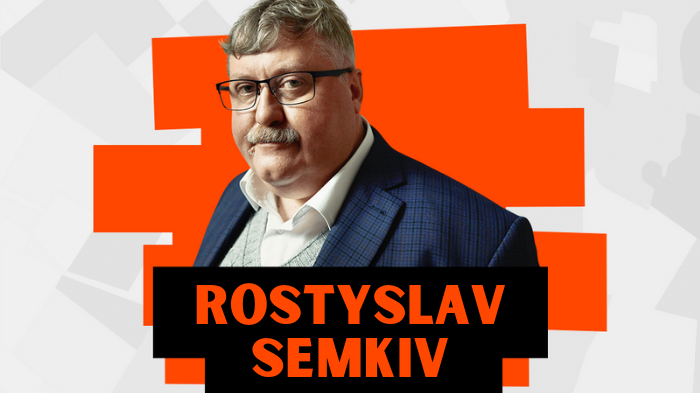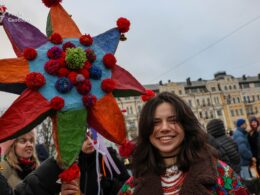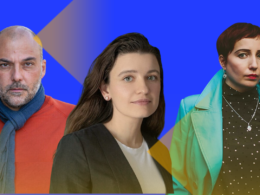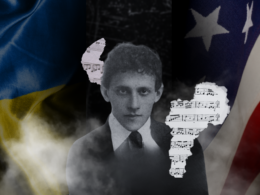1.
History is objective in that it is a series of significant and insignificant events. It is initially a collection of facts resulting from actions influenced by various factors, and thus the ability of individuals or even organized groups to control it is limited.
The issue arises when we look back at history as a series of previously occurring events that can be understood and classified. At this point, history's objectivity may be lost because it will be interpreted from a specific perspective and classified by institutions created for this purpose. As a result, some events and facts will be highlighted, while others will be ignored or dismissed.
In retrospect, history will always be open to subjective interpretations.
A scientist who values objectivity will attempt to examine the full range of causes and consequences of certain events, resisting one-sided interpretations no matter how appealing they may appear in the current context. They will not alter facts to suit the needs of the present moment.
A propagandist, on the other hand, will create a historical narrative to suit the current government, emphasizing its supposed grace and generosity. As a result, there is a disconnect from the reality of the events depicted and a reliance on fabricated beliefs.
This is what happened to Russian historical ideas, which the Russians used to build their distorted geopolitical vision.
The historical coincidence of events that caused it is forgotten, and in its place is the belief that the current state is predetermined: we dominate because we are superior, more powerful, and more robust.
Thus, history, which should demonstrate the true course of events and logically refute such claims, is rewritten to suit the needs of imperial hegemony. A construct is created that may not correspond to the logic of earlier events.
The Russian dictator demonstrated this in his speech on the eve of the February 2022 invasion of Ukraine.
The problem is that history still exerts its influence and continues to shape consciousness and the preconditions for specific actions. No matter how much one imagines Ukrainians as friendly to their northern neighbors and fearful of their armies, this is not the case in reality: historical truths and grievances have shaped a nation aware of its struggle, preferring to imagine itself as Cossacks capable of defeating any occupier.
You cannot distort history; it will respond, and it will respond cruelly.
2.
Most people cannot feel history because they only come into contact with it at school and university. It manifests itself through a series of events and facts.
There are, however, times when entire generations find themselves, "in the vortex" of history, at the epi-center of significant events that later will be referred to as historical.
Today is one of those times.
History is unfolding right in front of our eyes and all around us. Its touch is painful; terrible events strike us, and we are moved by the tragedies of loved ones or people we do not know, but with whom we still feel a strong connection.
We were not looking for this, and many of us denied the possibility of such events until the very last moment. However, it is already too late: the roller coaster, or, in our case, the tank of history, has begun to move.
Memoirs undoubtedly will be written about this period. They are most likely already being written.
All we have to do now is figure out what to do with this tank. We clearly chose resistance through javelins, drones, fighting back, volunteering, donating, working, and writing. But, in responding to the formidable challenge of history here and now, we inevitably change it for the future.
Surely, the empire will fall, never to rise again. After all, many former world metropolises now live modestly and with adequate, healthy ambitions. The history unfolding now as a result of HIMARS rocket launches will cause more significant historical changes in the future. Not only will history change, but so will geography. And, given the world economy's reliance on oil and gas, geology may change, too.
Their village is occupied by Russians, but they unite online
3.
However, the changes will have an impact on both future history and the past. Even now, given current events, most of our fellow Ukrainian citizens have clearly answered a number of questions and doubts that seemed uncertain to them before.
We now know the truth: northern princes constantly attacked [the medieval kingdom of Kyivan] Rus, even before the arrival of Batu Khan's hordes. Moscow continued to do so during Russia's later union with Lithuania and Poland. Moscow broke agreements with Cossack leader Bohdan Khmelnytsky. Ivan Mazepa desired freedom for Ukraine.
The northern empire purposefully destroyed Ukraine and its historical memory. The Russian Bolsheviks organized an artificial famine and killed a large number of Ukrainians because of their national consciousness.
There will be no more delusions. There will be no more fiction about brotherly nations.
We now can see clearly who Ukraine's brothers and sisters are, who are now ready to rush to our aid and double the blow. The same empire wronged them with the siege of Izmail, the devastation of Crimea, the suppression of Polish uprisings, the tragedy of the Prague Spring, and much more. We have long been in the European field of civilization, and only the northern barbarians' insinuations kept us from plunging into it. We can see it all around us these days.
So it's time to change and return the truth to prove our European past. History will change, both the one we know and the one we will know.
is an online anthology of essays by Ukrainian intellectuals about the Russian invasion of Ukraine. One hundred Ukrainian authors recount their own experiences, impressions, observations, and feelings in 100 texts. The anthology's creation takes place within the framework of the USAID-backed, Deepening the Internal Cultural Dialogue in Ukraine project. ©Meridian Czernowitz.
Related:
- I’m done believing we’re the stupid ones, Ukrainian soldier tells Jonathan Franzen
- Lviv Garrison Church chaplains help soldiers find God amid war. And a pair of good boots
- Ukrainian theology professor turned sniper tells how to hunt for Russian invaders
- I am a researcher, not a military man. But there is war…
- “Dearest daughter, it’s total Hell. Death is everywhere” – Ukrainian father on the frontline
- Russian occupiers launch war on Ukrainian history, burning books and destroying archives
- They thought we are cave people: stereotypes Ukrainian refugees face in Europe
- The Russian invasion of Ukraine is an assault on the very concept of freedom





